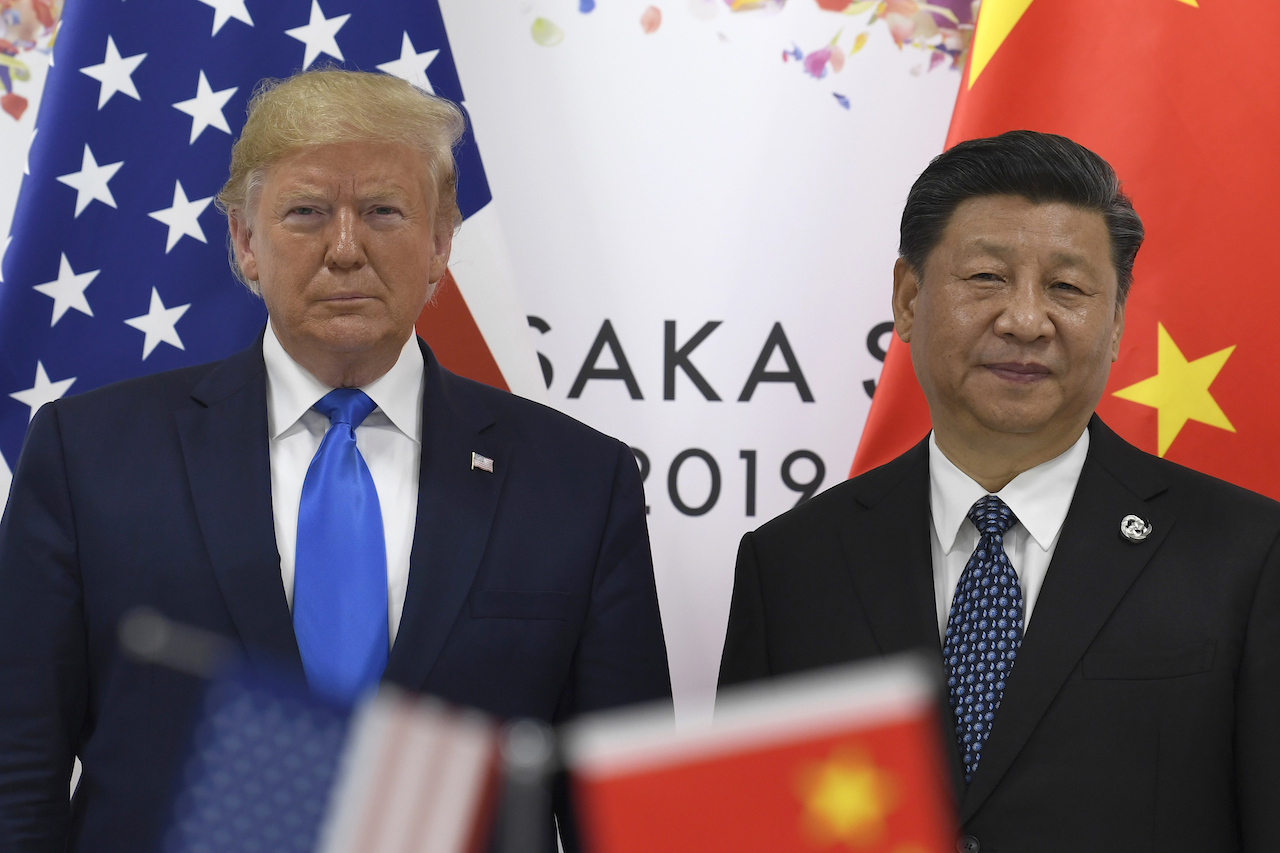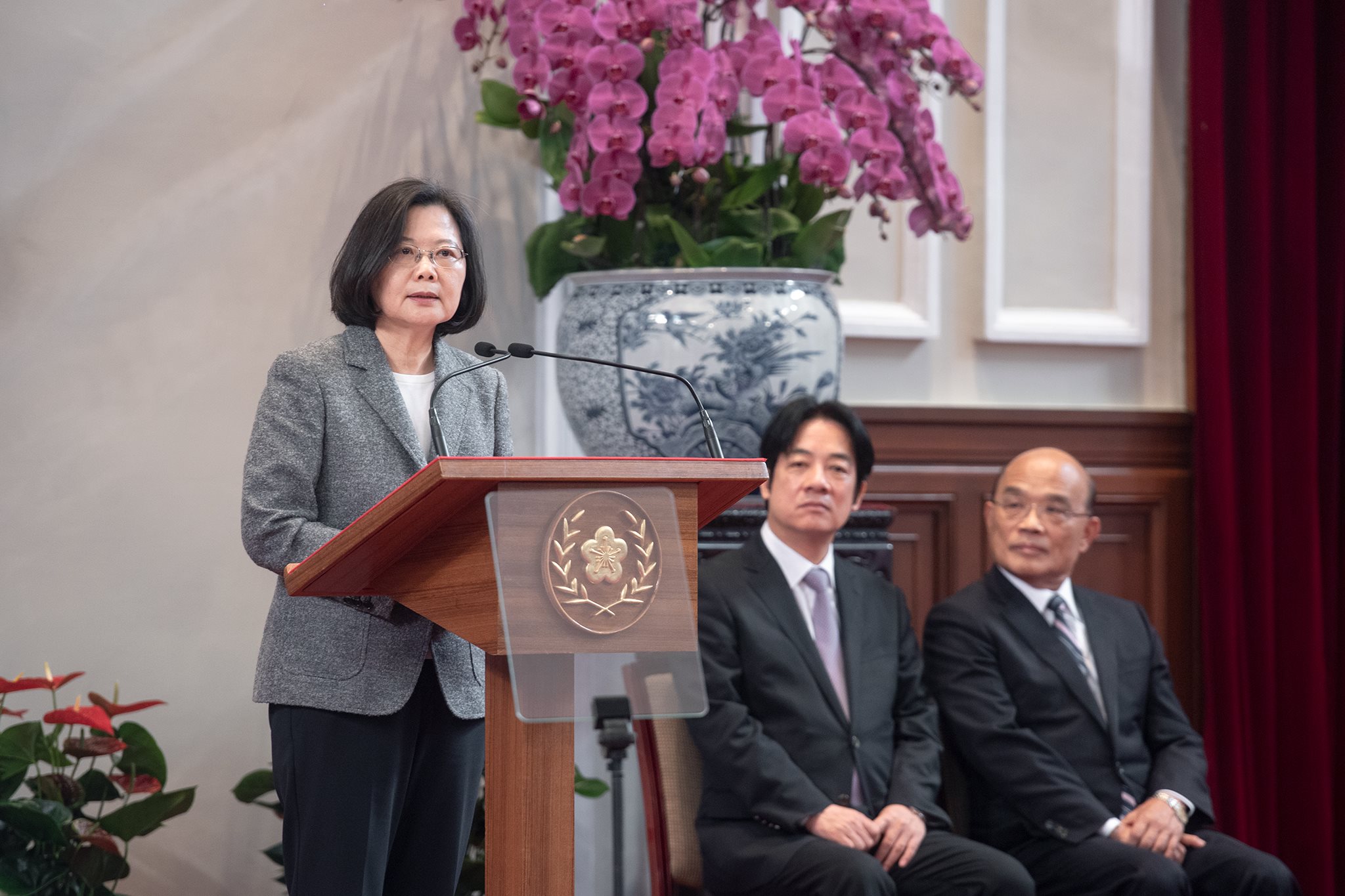For moral as well as geo-strategic reasons, Taiwan matters to the United States. Abandoning it to authoritarian forces would spell disaster for American interests not only in the Asia Pacific, but globally.
The Chinese leadership often justifies its stance on Taiwan by emphasizing the “century of humiliation.” China, the argument goes, deserves reparation and therefore has valid reasons to “recover” Taiwan, portrayed as the final piece of “stolen” Chinese territory.
That posture stems from Taiwan’s formidable strategic position: while it is now seen as a liability for China’s security, once controlled by China, Taiwan could serve as both a shield for its coastal provinces and a springboard from which the People’s Liberation Army (PLA) can operate.
Meanwhile, Taiwanese strongly oppose unification with China; they cherish their democratic institutions and feel alienated by China’s bullying practices. As before, Taiwan relies on American protection. But the rise of China and the relative decline in U.S. influence in world affairs has led some to believe that a U.S.-Taiwan alliance no longer makes sense. Be that as it may, Americans need to realize that abandoning Taiwan would not serve their interests. To the contrary, the “loss” of Taiwan could have far-reaching geo-strategic consequences for the United States.
Security imbalance
An ongoing surge in Taiwanese national identification has pushed the island-nation further away from China, and explains why Beijing has warned it is prepared to go to war if “peaceful unification” tactics fail. The risk of a cross-Strait conflict is therefore serious, especially if China convinces itself that it must not lose more time, or that it can afford the costs of military action to resolve the matter once and for all.
In the meantime, the balance of power in the Taiwan Strait has shifted in China’s favor, with Taiwan struggling to acquire from abroad the weapons it needs. The U.S., under the Taiwan Relations Act, is committed to providing Taiwan with the defensive weapons it needs to build a sufficient deterrence against China. But what Taiwan gets is arguably insufficient and overpriced.
The waters between Taiwan and China will boil if nothing is done to fix the military imbalance. Since war in the Taiwan Strait could trigger a domino effect, likely bringing the U.S., Japan and the Korean Peninsula into the turmoil, it is clear that a U.S. abandonment of Taiwan would be a terrible mistake, not only strategically but also morally.
Taiwan’s moral value to the U.S.
China often accuses the U.S. of having double standards on human rights and democracy issues. The 2003 invasion of Iraq, the Guantanamo prison, and the stalemate in Syria are all examples, in Beijing’s eyes, undermining American credibility on the world stage.
But forsaking Taiwan would be the icing on the cake. If this happened, the U.S. could give up all pretense of being the leader of the “free world,” as such a claim would now be farcical. Thus, a renewed U.S. commitment to Taiwan would boost Washington’s credibility worldwide and invite other hostile powers to exercise self restraint.
China is governed by an authoritarian regime where political opposition is severely repressed. Maoism faded away but was replaced by brutal capitalism; inequality at birth, unequal opportunities; inequality between provinces; controlled freedom of movement; and control of the mind through propaganda and the law. The Chinese Communist Party (CCP) endorses a strident nationalism and targets so-called Western values, such as democracy and human rights, to legitimize its grip on Chinese society.
The nature of the Chinese regime should open the eyes of the U.S. and the international community to Taiwan’s reality. According to French philosopher Marcel Gauchet, being democratic means accepting contradictions and adversaries in politics; something the Taiwanese have fully achieved. Nowadays Taiwan represents a model of what the U.S. has tried to encourage around the world: a vibrant society which achieved a rapid transition from authoritarianism to a democracy and where the rule of law prevails. Freedom of speech is well respected, as demonstrated by the decision by Reporters Without Borders (RSF) to open its first Asian office in Taipei. Nowadays, rising Taiwanese political forces are young, they praise liberty and progressivism, and Taipei is well-known for hosting one of the largest LGBTQ communities in Asia.
Finally, thanks to its geographic position, Taiwan’s democracy serves as a contrast with China’s authoritarianism. Jay Tsu-yi Loo, a Taiwanese researcher at the International Assessment and Strategy Center in Washington, D.C., observes that “the preservation of Taiwan as an independent democracy is in accord with the interests of the US because Taiwan’s democracy is a thorn in the side of the CCP (…) Taiwan’s experience disproves the fallacy that democratic values are incompatible with Asian culture” (Loo, 2014).
Taiwan’s geo-strategic value
If the U.S. does not take the Taiwan issue seriously, it risks sending a catastrophic message to other neighbors of China such as Japan and South Korea, which fearing abandonment could be tempted to develop a nuclear deterrence of their own. In Taiwan itself, policymakers could seize the occasion to take more decisive steps toward a formal declaration of independence that would in turn precipitate Chinese aggression. Even in Europe, a weak U.S. commitment to Taiwan could be interpreted by Russia as a hint that it can intensify its destabilization tactics against Eastern Europe.
Ultimately if Taiwan fell, sea lines of communication (SLOC) and airspace around China (the “first island chain”) would be cut off from the U.S. military, disrupting its entire Asian defense architecture. Not only would the Chinese military gain access to Pacific Ocean blue waters, bringing the PLA to the “second island chain” — Midway and Hawaii — the U.S. would also have to divide its forces between Northeast and Southeast Asia. In other words, selling a few defensive weapons to Taiwan today, as well as providing the necessary security guarantees, would be much less expensive than securing the whole Pacific Ocean tomorrow.
There could be good news for Taiwan. As last week’s U.S. missile strikes in Syria demonstrated, President Trump, who arguably lacks competence on foreign affairs, seems to have given more independence to the Department of Defense. And as we know, the Pentagon is more prone to regard China’s “rise” as a threat and is usually known for its favorable views on renewed U.S. commitment to Taiwan.
Also, if one refers to Mearsheimer’s argument that China is seeking regional hegemony, it is less than certain that it would stop its ambitions after having seized Taiwan. To the contrary, having absorbed Taiwan without prohibitive cost, Beijing could conclude that the U.S. will be “soft on crime,” leading to subsequent clashes and new security dilemmas. In sum, weak support for the island-nation could trigger a nightmarish “domino effect” in the Asia Pacific.
Renewing U.S. support
After the telephone conversation between Taiwanese President Tsai Ing-wen and president-elect Trump last December, and Trump’s subsequent questioning of the validity of the “one China” policy, many had hoped that things were moving in the right direction for Taiwan. However, after hinting that Taiwan could instead be used as a bargaining chip — a far cry, if true, from Taiwan having its own geo-strategic and moral value — Trump later reversed course on “one China.”
This reversal highlighted a lack of decisiveness from the U.S. But this should change.
China usually draws red lines in negotiations when its “core interests” are at stake. The U.S. does not. Starting by recognizing the defense of Taiwan as a U.S. “core interest” would only partly restore the balance while alleviating the risks of war by deterring Beijing. Efforts should therefore be made to constructively explain to Beijing why Taiwan matters to the U.S. Policymakers from all sides would undoubtedly feel more secure if they negotiated on a more balanced footing.
Starting by recognizing the defense of Taiwan as a U.S. “core interest” would only partly restore the balance while alleviating the risks of war by deterring Beijing.
Adopting a firm, clear strategy on Taiwan also involves strengthening near-official ties with well publicized decisions such as joint military exercises and intelligence sharing, or by authorizing reciprocal visits by high-ranking government officials or senior members of the armed forces.
Besides a strong update in verbal support for Taiwan, offering advanced weapons such as advanced combat aircraft or technological transfers to assist Taiwan in building indigenous systems would be very useful both symbolically and to achieve a credible deterrent. Arms deals would strengthen the confidence the Taiwanese place in the U.S., in their military and in their democracy. Another effect would be to increase Taiwan’s defense spirit at all levels across society, making the population and policymakers more amenable to increases in defense spending to levels that are commensurate with the threat.
History has repeatedly shown that shying away from authoritarian and expansionist powers often feeds their appetite. As tensions rise again and Taiwan becomes more vulnerable, the United States should abandon its principle of strategic ambiguity. Taiwan is a structural ally of the U.S. and coming to its aid would be a win-win situation if contingencies are handled properly. Notwithstanding the fact that Taiwan already plays a key role in securing U.S. strategic interests in the Asia Pacific, assisting it in countering Chinese coercion — and perhaps even in its right to self-determination — would help restore the U.S.’ image as a protector of democratic values worldwide.
You might also like
More from China
A Few Thoughts on the Meng-Spavor-Kovrig Exchange
It is hard not to see this weekend’s developments as a victory for China and the creation of a world …
In Memoriam: Lee Teng-Hui and the Democracy That He Built
The former president of Taiwan is the incontestable refutation of the belief that history is merely an impersonal force, that …
The Making of ‘Insidious Power: How China Undermines Global Democracy’
A new book released on July 30 takes a close look at the agencies and mechanisms of CCP 'sharp power' …









